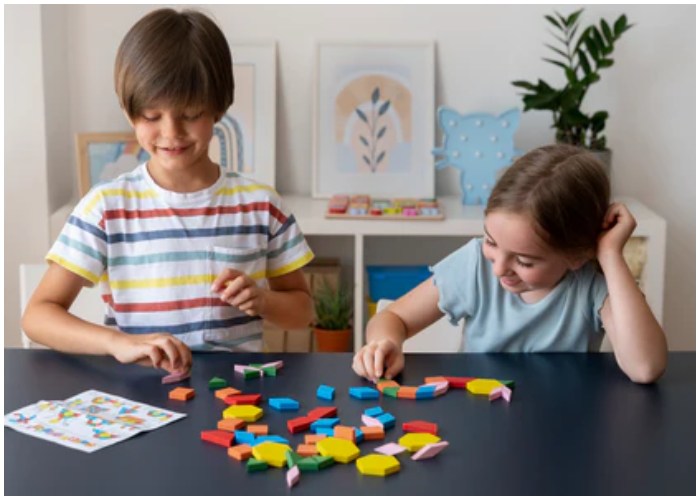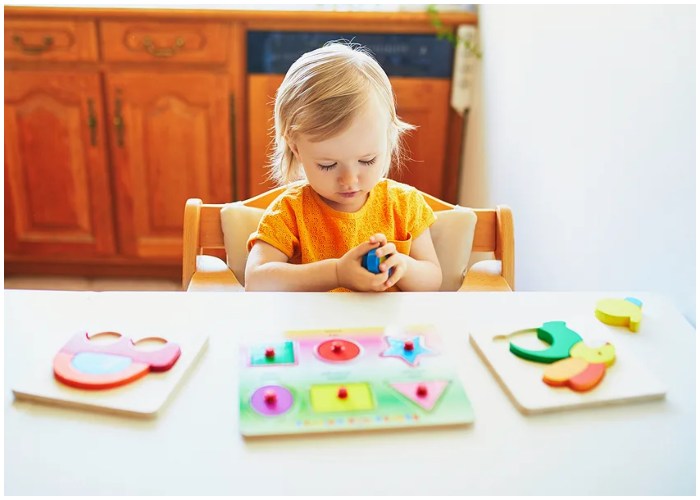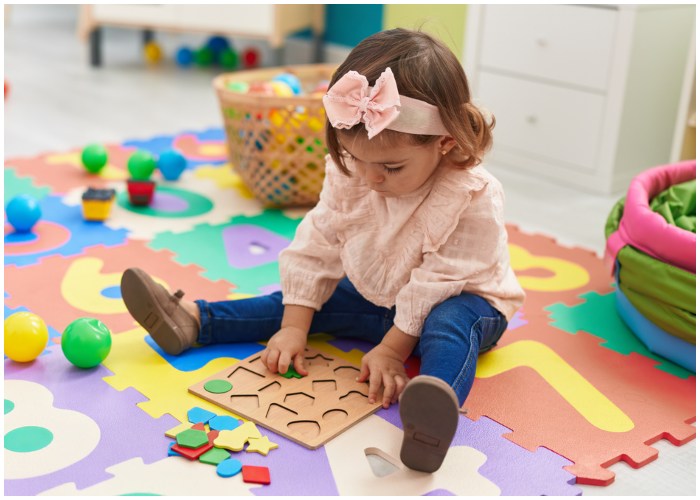Jigsaw puzzles have been a staple in children’s playtime for centuries, with the first one created in the 1760s. These simple yet captivating toys continue to be a must-have in every toddler’s toy box. There’s a reason puzzles have stood the test of time—they’re fun, engaging, and offer significant developmental benefits for young children. From boosting concentration to developing fine motor skills, jigsaw puzzles are an excellent way to help your toddler learn and grow. Below are eight fantastic benefits of puzzles for toddlers.

1. Improves Concentration and Memory
Completing a jigsaw puzzle requires focus, and this helps toddlers develop their concentration skills. Depending on their age, a toddler can concentrate on a task for around two to five minutes per year of age. For example, a three-year-old may concentrate for about six to 15 minutes. Puzzles offer an ideal opportunity for your little one to practice sustaining attention.
In addition to concentration, puzzles also help with memory. Toddlers learn to remember the shapes, colors, and patterns of puzzle pieces and their correct placements. Over time, they may be able to complete the same puzzle more quickly as they remember where each piece goes.
2. Encourages Shape Recognition
By the time they’re around three years old, many children can recognize basic shapes like squares, circles, and triangles. However, puzzles can help expand their shape recognition abilities. As toddlers pick up different puzzle pieces, they begin to understand how the shapes fit together. This not only enhances their ability to identify shapes but also builds a foundation for recognizing letters and numbers later on.
3. Develops Fine Motor Skills
One of the most significant benefits of puzzles for toddlers is the development of fine motor skills. When children pick up puzzle pieces and fit them into the correct spaces, they’re practicing the pincer grip, which is essential for holding a pencil or paintbrush later in life. Pegged puzzles, in particular, are great for building these skills as toddlers manipulate the pieces into place.

4. Boosts Hand-Eye Coordination
Hand-eye coordination is crucial for everyday activities such as eating, writing, and playing sports. Puzzles are an excellent way for toddlers to develop this skill. By picking up pieces and placing them in the right spots, children learn to synchronize what they see with the movements of their hands. Over time, their accuracy and coordination improve, helping them with more complex tasks later on.
5. Enhances Problem-Solving Skills and Logical Thinking
Puzzles are essentially a problem that needs to be solved. Toddlers learn to approach puzzles strategically by sorting pieces by color, shape, or edge and working through the puzzle in steps. This process teaches children how to break down larger tasks into smaller, manageable pieces—a skill that translates to other areas of life, such as organizing toys or solving real-world problems.
6. Builds Confidence and Self-Esteem
There’s a sense of accomplishment that comes from completing a puzzle, and toddlers experience this satisfaction too. When your little one solves a puzzle on their own, they’ll get a confidence boost from tackling a challenging task. Celebrating their success and offering praise can further boost their self-esteem, encouraging them to take on even more challenges in the future.

7. Teaches Patience
Patience is not a skill that comes naturally to toddlers, but puzzles can help them develop it. Completing a puzzle takes time, and there’s no shortcut to the finish line. As your child sits down to work on a puzzle, they learn the value of persistence and the reward of seeing their efforts come together in the end. Puzzles are a gentle way to teach patience, as the satisfaction of completing the task makes the waiting and effort worthwhile.
8. Promotes Teamwork and Social Skills
Puzzles are not just for solo play—they’re great for teamwork too! When toddlers work on puzzles with siblings, cousins, or friends, they practice important social skills like communication, cooperation, and taking turns. Working together on a puzzle also enhances language development as children discuss strategies, share pieces, and offer encouragement to one another.
Making Puzzles a Part of Your Child’s Development
Jigsaw puzzles are more than just fun—they’re a powerful educational tool that helps toddlers grow in many different ways. Whether it’s improving concentration, boosting memory, or teaching problem-solving, puzzles provide numerous developmental benefits for your little one. Additionally, they’re a wonderful way to spend quality time together, encouraging interaction and bonding.